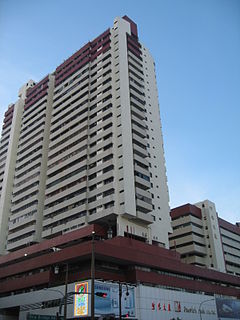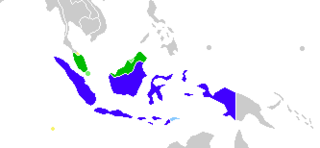In the United States, a homeowner association is a private association often formed by a real estate developer for the purpose of marketing, managing, and selling homes and lots in a residential subdivision. Typically the developer will transfer ownership of the association to the homeowners after selling a predetermined number of lots. Generally any person who wants to buy a residence within the area of a homeowners association must become a member, and therefore must obey the governing documents including Articles of Incorporation, CC&Rs and By-Laws, which may limit the owner's choices. Most homeowner associations are incorporated, and are subject to state statutes that govern non-profit corporations and homeowner associations. State oversight of homeowner associations is minimal, and it varies from state to state. Some states, such as Florida and California, have a large body of HOA law. Other states, such as Massachusetts, have virtually no HOA law. Homeowners associations are commonly found in residential developments since the passage of the Davis–Stirling Common Interest Development Act in 1985.
A condominium, often shortened to condo, in the United States and in most Canadian provinces, is a type of living space similar to an apartment but independently sellable and therefore regarded as real estate. The condominium building structure is divided into several units that are each separately owned, surrounded by common areas that are jointly owned. Similar concepts in other English-speaking countries include strata title in Australia, Malaysia, New Zealand, and the Canadian province of British Columbia; commonhold in the United Kingdom; and sectional title in South Africa.
Strata title is a form of ownership devised for multi-level apartment blocks and horizontal subdivisions with shared areas. The 'strata' part of the term refers to apartments being on different levels, or "strata".
Property management is the operation, control, and oversight of real estate management indicates a need to be cared for, monitored and accountability given for its useful life and condition. This is much akin to the role of management in any business.
Title 28 is the portion of the United States Code that governs the federal judicial system.
The Internal Security Act 1960 was a preventive detention law in force in Malaysia. The legislation was enacted after Malaysia gained independence from Britain in 1957. The ISA allows for detention without trial or criminal charges under limited, legally defined circumstances. On 15 September 2011, the Prime Minister of Malaysia, Najib Razak said that this legislation will be repealed and replaced by two new laws. The ISA was replaced and repealed by the Security Offences Act 2012 which has been passed by Parliament and given the royal assent on 18 June 2012. The Act came into force on 31 July 2012.

The Vicar General of the Diocese of Sodor and Man is an ecclesiastical law officer appointed by the Bishop of Sodor and Man.

People's Park Centre is a mixed-use development, strata-titled development located along Upper Cross Street in Outram, Singapore. It has a mix of residential units, shops and offices. Constructed on the land sold in the first Government Land Sales (GLS) programme, People's Park Centre marks an important chapter in the architectural history of post-independence Singapore. Completed in 1973, the centre is now slated for redevelopment.

The Ministry of National Development (Abbreviation: MND; Chinese: 国家发展部 Malay: Kementerian Pembangunan Negara; is a ministry of the Government of Singapore that directs the formulation and implementation of policies related to land-use planning and infrastructure development.
Strata management, sometimes known as "body corporate management", is a specialist area of property management involving the day-to-day operation and management of a property that is jointly owned and comprises multiple units, common areas and common facilities. It is derived from an Australian concept of property law called strata title applied to the administration of common ownership in apartment buildings on multiple levels, or strata. Emerging markets in Dubai, Abu Dhabi, the Philippines and India have adopted the Australian system. It is one of the fastest growing forms of housing in the United States today, similar to common-interest development (CID), a category that includes planned unit developments of single-family homes, known as homeowner associations (HOAs), condominiums, and cooperative apartments. Federally-subsidized financing provided by two government-sponsored enterprises Fannie Mae and Freddie Mac via uniform financial instruments—mortgages that oblige the borrower to honour covenant restrictions of the collective-property regime with PUD or condo riders. Such provisions however are only enforceable where statutes recognise their validity. Common expense liabilities are often subordinated as junior liens in bankruptcy courts, with the bank retaining senior title.

The Constitution of Barbados is the supreme law under which Barbados is governed. The Constitution provides a legal establishment of the structure and various roles of administration of the Queen of Barbados, the Government of Barbados, as well as legal rights and responsibilities of the public and various other government officers. The Constitution which came into force in 1966 was amended in 1974, 1978, 1990, 1992, 1995, 2002 and 2003. The 1966 document succeeds several other documents concerning administration of Barbados. One of them, the Barbados Charter, is discussed in the present Constitution's Preamble. Prior statutes were created for the administration of Barbados as a colony. As a former English and later British colony, the Constitution is similar to those of other Commonwealth realms, yet distinctly different in the spirit of the Statute of Westminster. In recent years there has been some dialogue on whether Barbados should undertake a process of patriating the constitution to cease the foundation being a 1966 Act of the British House of Commons.

The Ministry of Domestic Trade and Consumer Affairs, abbreviated KPDNHEP, is a ministry of the Government of Malaysia that is responsible for domestic trade, co-operatives, consumerism, franchise, companies, intellectual property, competition, controlled goods, price control, pyramid scheme, consumer rights, trader.

The Ministry of Housing and Local Government, abbreviated KPKT, is a ministry of the Government of Malaysia that is responsible for urban well-being, housing, local government, town planning, country planning, fire and rescue authority, landscape, solid waste management, strata management, moneylenders, pawnbrokers.

One in eight Canadian households lived in a residential condominium dwellings, mostly located in a few census metropolitan areas according to Statistics Canada Condominiums exist throughout Canada, although condominiums are most frequently found in the larger cities. "Condominium" is a legal term used in most provinces of Canada. in British Columbia, it is referred to as "strata title" and in Quebec, the term "divided co-property" is used, although the colloquial name remains "condominium".
The Indian Railway Stations Development Corporation (IRSDC) is a special purpose vehicle (SPV) of the Government of India that has been designed to develop new stations and redevelop existing Indian railway stations. IRSDC is a joint venture between IRCON and RLDA with a 51:49 equity shareholding ratio respectively. ISRDC was incorporated under the Companies Act, 1956 on 12 April 2012.

The National Land Code, is a Malaysian laws which enacted to amend and consolidate the laws relating to land and land tenure, the registration of title to land and of dealings therewith and the collection of revenue therefrom within the States of Johore, Kedah, Kelantan, Malacca, Negeri Sembilan, Pahang, Penang, Perak, Perlis, Selangor, Terengganu and the Federal Territory of Kuala Lumpur, and for purposes connected therewith.

The Armed Forces Act 1972, is a Malaysian laws which enacted to amend and consolidate the law relating to the establishment, government and discipline of the armed forces of Malaysia.

The Postal Services Act 2012, is a Malaysian laws which enacted to provide for the licensing of postal services and the regulation of the postal services industry, and for incidental or connected matters.

The Companies Act 1965, is a Malaysian law which relates to companies.

The Arbitration Act 2005 is a Malaysian law which was enacted to reform the law relating to domestic arbitration, provide for international arbitration, the recognition and enforcement of awards, and for related matters.










